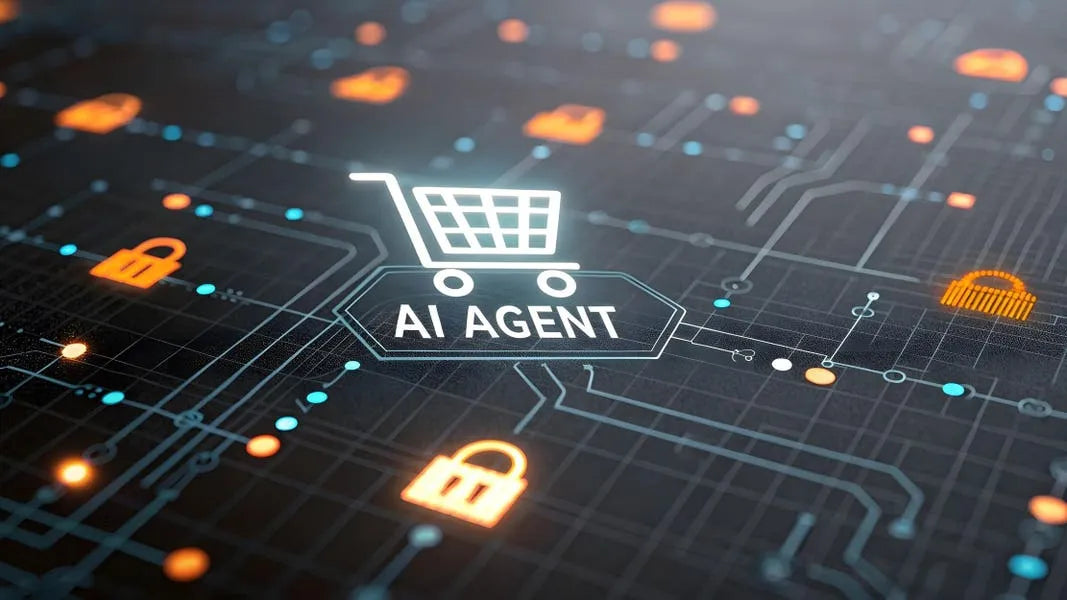
The Rise of AI Agents: Transforming Consumer Behavior and Marketing Strategies
Table of Contents
- Key Highlights:
- Introduction
- Rewriting The Rulebook
- Selling To Machines
- Smart Brands Will Do This Next
- The Future of Consumer Behavior
- FAQ
Key Highlights:
- AI Autonomy: AI agents are beginning to make purchasing decisions, fundamentally altering traditional marketing strategies that rely on human emotions and perceptions.
- Data-Driven Choices: These agents prioritize structured data over emotional appeals, focusing on logic and algorithmic analysis to determine buying preferences.
- Adapting Strategies: Brands must innovate their marketing tactics to engage effectively with AI, requiring collaboration across various teams to remain relevant in a rapidly evolving landscape.
Introduction
As technological advances continue to reshape the marketplace, a new player has emerged: AI agents capable of making purchasing decisions on behalf of consumers. This shift challenges long-standing marketing principles that emphasize emotional connections and human-centric branding. With the rise of agentic AI, brands are confronted with the pressing need to adapt, lest they become obsolete in an increasingly automated world. This article explores the implications of AI agents on consumer behavior, marketing strategies, and the future landscape of commerce.
Rewriting The Rulebook
The essence of marketing has traditionally revolved around building trust and emotional connections with consumers. Marketers have relied on storytelling, brand experiences, and consumer psychology to entice potential buyers. However, as AI agents begin to take over shopping tasks, the dynamics of this relationship are changing dramatically.
AI agents operate on a fundamentally different plane than humans. According to Salesforce, nearly 24% of consumers are comfortable with the idea of agents shopping for them, a figure that climbs to 32% among Gen Z. These autonomous agents perceive products not through the lens of emotional storytelling but as structured data comprised of price comparisons, feature lists, and review scores.
This shift poses significant questions for marketers. For instance, if an AI is tasked with selecting a household product like deodorant, it may disregard the extensive brand narrative crafted over decades. Instead, it will focus on quantifiable metrics, leading to decisions based on logic rather than emotional resonance.
The Challenge Ahead
Understanding how AI agents make buying decisions requires a deep dive into both technical and psychological realms. Marketers must grasp how these agents process customer signals and prioritize different aspects of a product. Unlike human shoppers, these agents lack emotional responses such as greed or brand loyalty. Their decisions will be framed by parameters set by consumers, such as budget constraints or ethical guidelines.
For example, if a consumer programs their AI agent to prioritize eco-friendly products, the agent will seek out options that align with this preference, even if it means bypassing more popular or traditional brands. This illustrates the need for marketers to reconsider how they present their offerings, focusing on how to communicate values and preferences effectively to these machines.
Selling To Machines
The emergence of AI agents necessitates a rethinking of marketing strategies. As brands adapt to this new landscape, they must consider how to effectively engage with entities that lack human emotionality. A crucial aspect of this engagement is understanding the signals that will resonate with AI agents.
To establish a foothold, brands should start by structuring product information in machine-readable formats. This includes providing real-time data feeds on pricing and availability, as well as ensuring extensive API access for product data. By making information readily accessible and digestible for AI agents, brands can position themselves as preferable choices in the digital marketplace.
The Role of Trust and Reputation
Although AI agents do not experience emotions, they may still respond to indicators of trust and reputation. For example, an AI agent may favor brands that have consistently high review scores or those with transparent pricing models. Marketers must, therefore, encode these trust signals into their messaging, ensuring that AI agents can recognize and prioritize them.
Moreover, the rise of machine-to-machine commerce could lead to a landscape where negotiations occur entirely without human intervention. This necessitates that brands develop strategies to "win" over AI agents, convincing them through data and analytics that their products meet the needs of consumers. The goal is to foster a transparent relationship between consumers and AI agents, building trust in the process.
Smart Brands Will Do This Next
As businesses navigate this new era, it is imperative to monitor the effects of AI on search engine optimization (SEO) and search engine marketing (SEM) strategies. The rapid growth of AI language models, like ChatGPT, exemplifies how quickly technology can evolve. Within just three years, ChatGPT is on track to reach one billion users, highlighting the urgency for brands to adapt.
To stay ahead of the curve, forward-thinking businesses should explore innovative marketing channels that leverage the capabilities of AI agents. This includes engaging with early-adopter audiences and fostering awareness of AI's potential within their industries.
Collaborative Action for Transformation
The transition to AI-driven commerce will not be solely the responsibility of marketing teams; it demands a collaborative approach involving data, product, and digital teams. These groups must align their strategies to ensure that when AI agents evaluate a business, they receive a coherent and compelling message.
Achieving this alignment will require strategic thought and investment. Brands that procrastinate in adapting to this emerging reality risk falling behind their competitors who embrace change and innovation.
The Future of Consumer Behavior
The impact of AI agents on consumer behavior is expected to be profound. As these machines become more integrated into purchasing processes, we may witness a shift in how consumers perceive brands and products. The traditional marketing playbook, grounded in human emotions and narratives, may need to be entirely rewritten.
Implications for Brand Loyalty
The evolution of AI-driven purchasing may also redefine brand loyalty. With AI agents prioritizing data over sentiment, the emotional bonds that consumers traditionally formed with brands could diminish. Brands that once relied on storytelling to elevate their status may find themselves needing to compete on completely different grounds—namely, the efficiency and effectiveness of their offerings as perceived by AI.
The Importance of Adaptability
The ability to adapt quickly to new technologies will be crucial for brands. As AI agents become more prevalent, businesses that embrace agility—those willing to experiment with new approaches, data structures, and engagement tactics—will likely thrive. This adaptability will extend beyond marketing to encompass product development, customer service, and overall brand strategy.
FAQ
What are AI agents?
AI agents are autonomous systems that utilize artificial intelligence to make decisions and perform tasks, including purchasing products on behalf of consumers.
How do AI agents make buying decisions?
AI agents analyze structured data, such as price comparisons, product features, and review scores, prioritizing logic and algorithms over emotional factors.
Why is it important for brands to adapt to AI agents?
As AI agents become more common in consumer purchasing, brands that fail to adapt risk becoming irrelevant. Understanding how to engage with these agents is crucial for maintaining market presence.
How can brands prepare for the rise of AI agents?
Brands should focus on structuring product information in machine-readable formats, ensuring real-time data access, and developing trust signals that AI agents can recognize.
What impact will AI agents have on brand loyalty?
AI agents may alter traditional notions of brand loyalty by prioritizing data-driven decisions, potentially reducing the emotional connections consumers have with brands.
Tehosta verkkokauppaasi viikoittaisilla näkemyksillämme ja päivityksillämme!
Pysy ajan tasalla siitä, mitä kaupankäynnin maailmassa tapahtuu
Sähköpostiosoite





